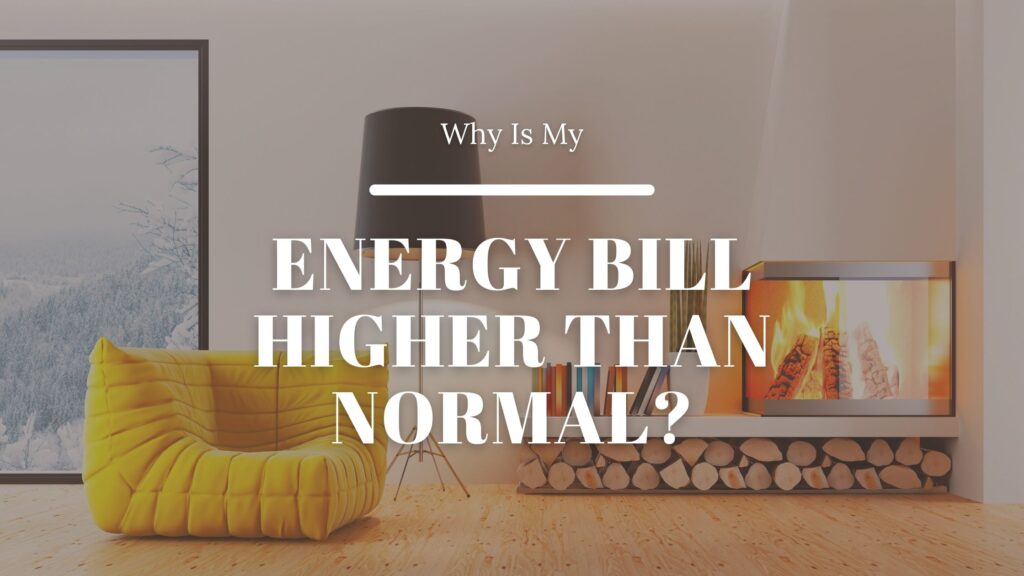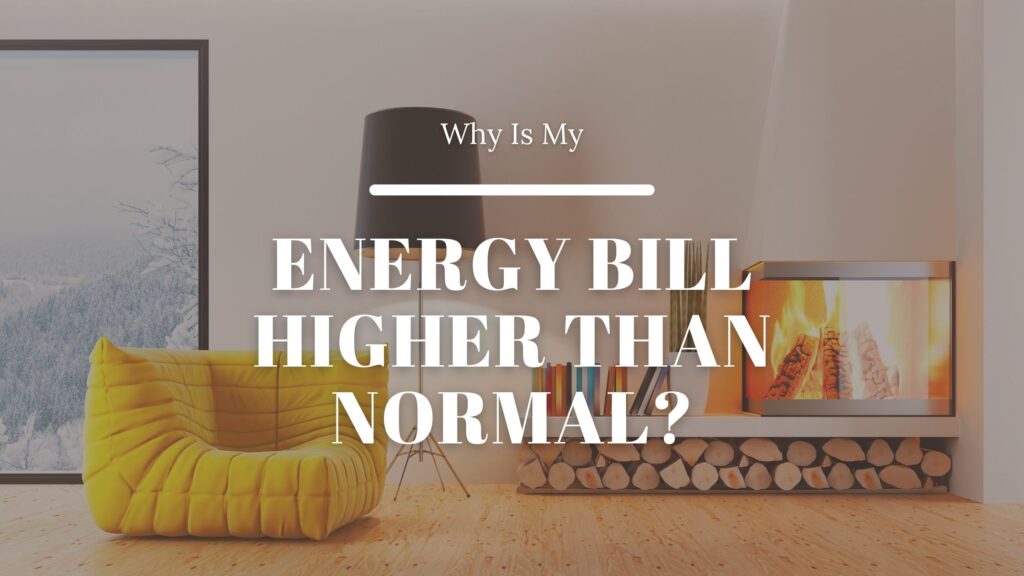
Why Is My Energy Bill Higher Than Normal?
A high heating bill is definitely not on any of our Christmas lists this year. While most of us expect our energy bills to be a little higher during seasonal changes, sometimes our bills arrive with steep, unexpected charges. There are a few reasons why your bill might be more than usual – poor insulation, an inefficient system, holiday cooking, decorations and lights, and constant temperature changes. Keep reading to learn more about why your energy bill is higher than normal, and what you can do to lower it.
Winter Is Coming
As the weather cools down, our thermostats get cranked up. Nobody likes to be cold in their own home. This is often the cause of the initial increase in your energy bill. The colder it is outside, the harder your heating system has to work to keep your home cozy and warm. A good solution is a programmable thermostat. While you’re away, let your home be a little cooler, and schedule your thermostat to warm your house again when you’re headed back. There’s no reason to waste money heating an empty home! Additionally, programmable thermostats can warm certain zones of your home, so if you know that nobody is going to be in certain areas, let it be cooler there to save some energy.
Holiday Baking
The holidays are here, which often comes with lots of cooking and baking. While we all love the delicious food and sweet treats, your energy bill can take a hit when you’re constantly reheating your oven. Instead of preheating your oven over and over, consider batch cooking. If the oven is already hot from making dinner, throw in a pie right after! Or start making items for tomorrow’s meals. This can make a big difference in your overall energy usage.
Poor Insulation
We often don’t think about our home’s insulation when it comes to our energy bills, even though it could be a major contributing cause to the high costs you’re experiencing. Older homes tend to lack sufficient insulation, but any home, no matter the age, can have drafty doors or windows. Small gaps in windows and doors, and improper insulation could be letting all your warm air seep out of your home.
Investigate and look for any spots where air could be escaping. Use double paned windows, as they’re more efficient in sealing up your home. Have a professional check your insulation to ensure it’s sufficient for your home, and add more as necessary. Keep out those high energy bills!
Inefficient Heating System
Sometimes your heating system itself may be the culprit. If your heating system is not working at maximum efficiency, your heating bill will be higher than usual. There are a few clues to look for when trying to decide if your heating system is lacking. If your system is heating rooms unevenly, constantly running, over 10 years old, or making suspicious noises, it may be time.
We know how expensive a new system can be and most of us dread the day of replacing a system. However, installing a new, efficient system will pay off in the long run. Contact the professionals at Island Air to do the job right. Once you have your system installed, be sure to sign up for a maintenance plan. Enrolling in regularly scheduled maintenance can prolong your system’s life and ensure that it continues to perform at peak efficiency for years to come.
We also offer free in-home estimates on new systems and convenient financing options (with approved credit)!
Contact Us
If you have any concerns about increasing energy bills, you can never go wrong with contacting the professionals. We are happy to aid in finding the issue and providing solutions. Give us a call at (251) 943-4709 to keep your home comfortable all year long.
For more information on our services, visit our website at https://callislandair.com/ or email us at [email protected]. We are your trusted American Standard Heating and Air Conditioning Customer Care Dealer in Gulf Shores, AL. Be sure to follow us on Facebook and Instagram! energy bill higher than normal energy bill higher than normal energy bill higher than normal energy bill higher than normal energy bill higher than normal



